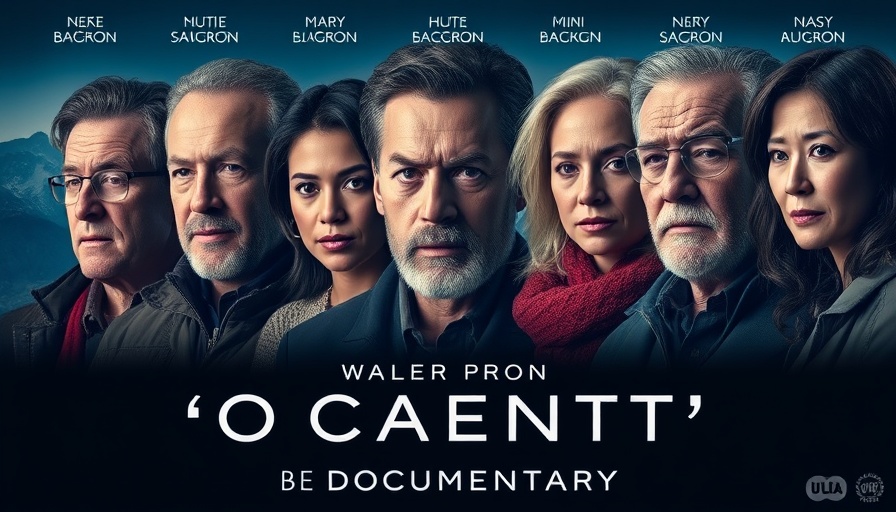
Water for Life: A Struggle for Rights and Recognition
The PBS documentary Water For Life has recently made waves with its powerful portrayal of individuals fighting for water rights across Latin America. At the center of the film is Francisco Pineda, an environmental activist from El Salvador who, over a span of 14 years, has been documenting the fight to stop gold mining operations endangering local water resources.
Pineda highlights a common sentiment among subsistence farmers: they desire better lives for their children but also value the land and water that sustain them. “You can’t come here and destroy our precious water resources and our ways of life,” he asserts, echoing the film’s urgent call for action to protect these vital resources against exploitation.
Connecting Stories Across Borders
Filmmaker Will Parrinello recognized that Pineda’s struggle was emblematic of much larger patterns of exploitation experienced by communities around the world. Merging Pineda's narrative with those of other activists like Alberto Curamil from Chile and Berta Caceres from Honduras, who are also entwined in battles over water rights, the film frames these stories within a global context. Each story illustrates not only the desperation for a fundamental resource but the human resilience that stands against corporate greed.
Challenges in the Fight for Clean Water
What stands out in Water for Life is the sheer risk faced by activists, many of whom suffer threats and even arrest for their efforts. For instance, Curamil’s wrongful arrest demonstrates institutional challenges activists face as they fight corporate interests. The environmental landscape is fraught with dangers, including intimidation tactics employed by corporations seeking to privatize water.
Success Amid the Struggle
While the journey is riddled with challenges, the film highlights significant victories. In Chile, Curamil's activism led to the non-construction of a damaging dam, while Caceres’ efforts curtailed a hydroelectric project in Honduras. Moreover, Pineda's activism contributed to a pivotal mineral mining ban in El Salvador, alongside winning significant legal battles against powerful corporations. These successes show that, despite the odds stacked against them, grassroots movements can enact real change.
The Future of Water Rights
As climate change exacerbates water scarcity issues, the documentary raises critical questions about the future of water rights, particularly as corporations increase their focus on privatization. As highlighted by Parrinello, the resilience of grassroots movements might provide a necessary bulwark against such trends, yet sustainability of these efforts remains uncertain. “How long will they hold out?” remains a lingering question.
Ultimately, Water For Life serves not just as a documentary but as a call to action. It challenges viewers to reflect on their relationship with water and the ongoing fight for this essential resource. By showcasing personal stories of struggle and resilience, it paves the way for a deeper understanding of the interconnectedness of environmental advocacy and human rights.
 Add Row
Add Row  Add
Add 




Write A Comment